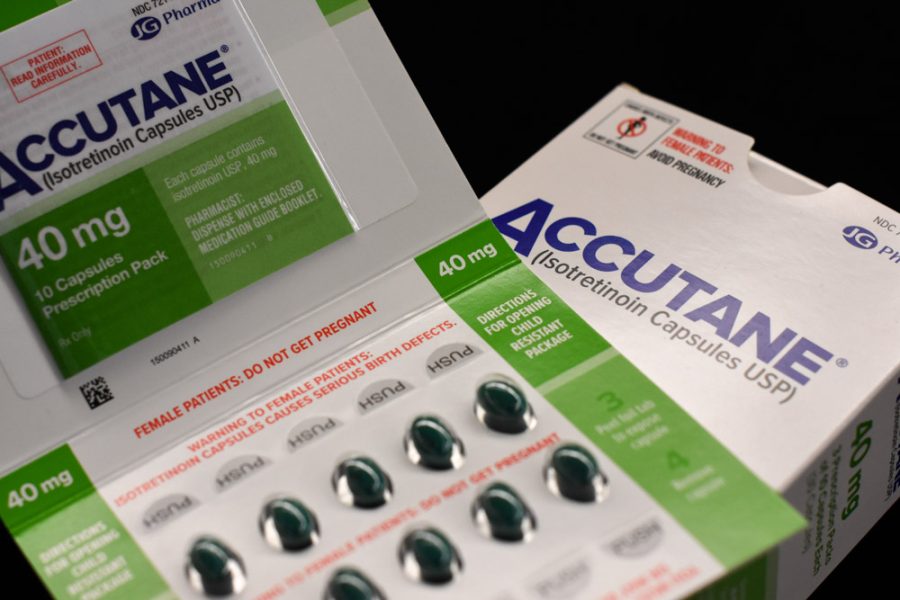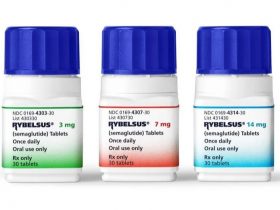Accutane, or isotretinoin, is a powerful medication commonly prescribed for severe acne that hasn’t responded to other treatments. It is known for its effectiveness in clearing up skin, but those considering this treatment might be concerned about potential side effects, including the possibility of weight gain.
While weight changes are not typically listed as a primary side effect of Accutane, some people taking the medication report fluctuations in their weight.
Understanding how Accutane affects the body is crucial for those using it to manage their acne.
A person considering this treatment should discuss potential side effects and concerns with a healthcare provider. This way, they can make an informed decision and understand how to properly manage any changes they experience throughout their course of treatment.
Reader's Roadmap
Key Takeaways
- Accutane is often prescribed for severe acne not responsive to other treatments.
- Weight gain is not commonly listed as a side effect of Accutane.
- Users should consult healthcare providers for personalized advice and management of side effects.
Understanding Accutane and Its Uses
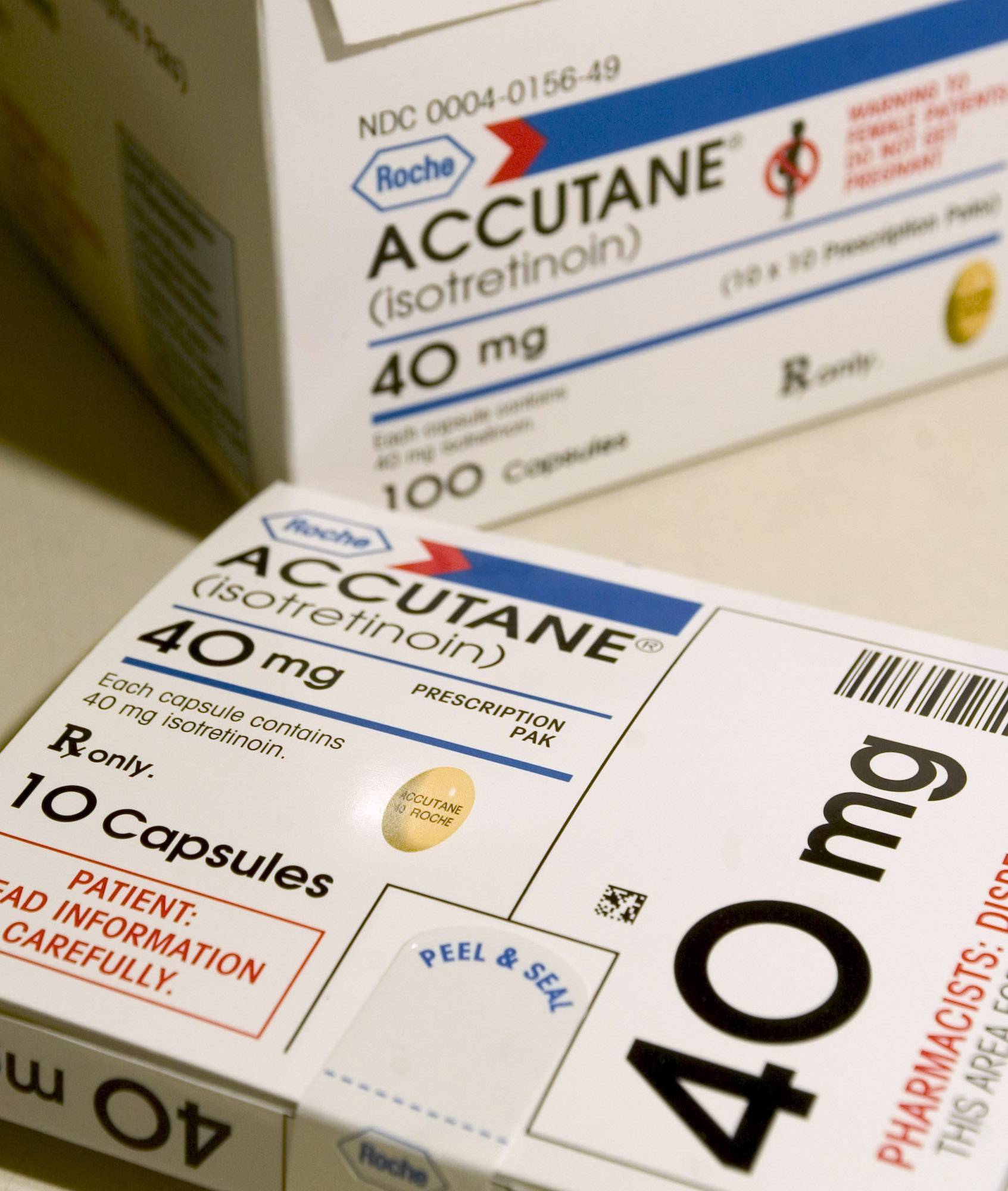
When it comes to tackling severe acne, Accutane is often a go-to medication. This section explores what Accutane is, its role in treating tough acne cases, and the science behind how it works.
What Is Accutane?
Accutane, the brand name for isotretinoin, is a powerful medication derived from Vitamin A. It falls under the category of drugs known as retinoids.
As a synthetic form of vitamin A, it helps to reduce the production of sebum—an oily substance produced by skin glands that can lead to acne when overproduced.
Accutane as a Treatment for Severe Acne
For individuals struggling with severe nodular or cystic acne, which hasn’t responded to other treatments, Accutane can be a ray of hope.
This medication is typically considered when severe acne persistently causes deep, painful cysts and nodules, which can lead to scarring.
Due to its strength and potential side effects, Accutane is usually prescribed after other acne treatments have failed to provide relief.
How Isotretinoin Works
Isotretinoin targets acne by dramatically reducing the size and output of the skin’s oil glands, which can decrease about 80% after a full course of treatment.
This drop in oil production creates an environment less conducive to the bacteria that contribute to acne.
While the precise mechanism is still not fully understood, isotretinoin alters the way skin cells grow and exfoliate, leading to clearer skin for many who use it.
Potential Side Effects of Accutane
When it comes to taking Accutane, an awareness of its side effects can better prepare individuals for the experience.
Side effects range from common, manageable symptoms to more severe ones that require immediate medical attention.
Common Symptoms and Side Effects
Accutane, a medication often prescribed for severe acne, can lead to several side effects.
Skin-related issues are prominent, with dry skin being a typical complaint.
Many people might also experience joint pain, discomfort in muscles, or headaches as their bodies adjust to the treatment.
- Skin: Severe dryness, particularly on the lips, and increased susceptibility to rashes
- Eyes: They may become irritated, leading to redness and itching
- Nose: Dryness can lead to frequent nosebleeds
In certain cases, Accutane can also affect one’s mental health, potentially triggering depression.
It’s important for patients to monitor their mood and emotional well-being.
Another critical aspect to keep an eye on is cholesterol levels, as Accutane can cause increases in blood lipids.
Managing Side Effects and When to See a Doctor
When someone starts experiencing side effects, managing them properly can make a big difference.
Moisturizers and lip balms can alleviate skin dryness, while using eye drops may help reduce eye irritation.
Staying hydrated and following dietary recommendations can also support better overall side effects management.
However, the occurrence of more severe or worrisome symptoms like intense joint pain, severe rashes, or signs of depression is a signal to seek medical advice.
It’s especially crucial for individuals who are or may become pregnant to discuss Accutane use with their doctor due to the risk of birth defects.
Any drastic changes in mood or thoughts should be addressed with a healthcare professional immediately.
Regular check-ins with a doctor will allow for close monitoring of side effects and ensure that any serious health concerns are caught and managed early on.
The Link Between Accutane and Weight Change
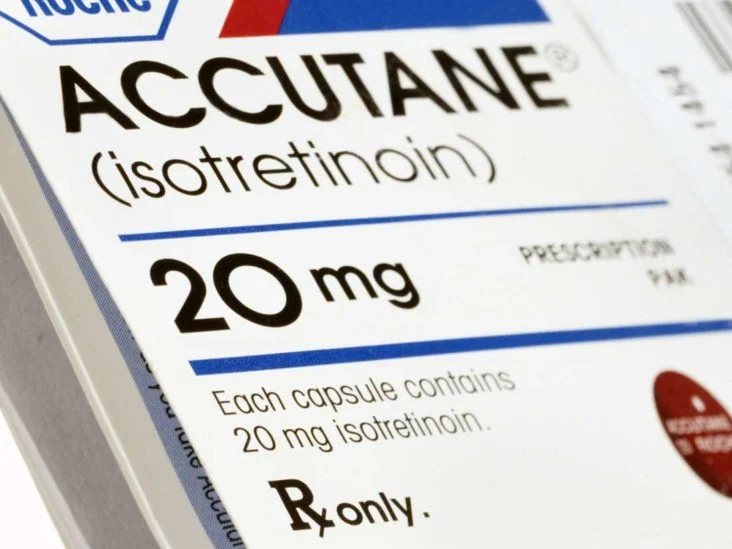
Many people worry about how medications might affect their weight. With Accutane, a drug used for severe acne, there are some thoughts on its impact on weight, but the details aren’t straightforward.
Does Accutane Cause Weight Gain?
Accutane, also known by its generic name isotretinoin, hasn’t been conclusively linked to weight gain.
While some individuals report changes in weight while on the medication, these accounts aren’t supported by a clear scientific consensus.
Patients need to monitor their weight but not to expect a definite increase or decrease as a direct consequence of the drug.
Effects on Appetite and Metabolism
Appetite: Accutane might influence appetite for some, leading to potential weight changes. However, this isn’t a universal effect and may vary from person to person.
- Increased appetite: Could potentially contribute to weight gain.
- Decreased appetite: Might be experienced by others, potentially leading to weight loss.
Metabolism:
- Cholesterol: Accutane has been linked to increased cholesterol in some instances, which suggests a need for careful monitoring.
- Insulin Resistance: There are also considerations about Accutane’s effect on insulin resistance, which is associated with weight gain in other contexts.
Patients on Accutane should maintain a balanced diet and regular exercise as these can mitigate any potential weight-related side effects.
Everyone’s body reacts differently, so it’s crucial to stay in close contact with a healthcare provider to address any personal concerns or noticeable changes.
Accutane Usage and Guidelines
Navigating the guidelines for Accutane usage is essential, especially due to its potent nature and potential side effects. Adhering to the correct dosage and understanding safety programs is a top priority for anyone considering this medication.
IPledge Program for Safety
Accutane, known generically as isotretinoin, is overseen by the FDA-approved iPledge Program, which aims to prevent isotretinoin exposure during pregnancy due to the high risk of birth defects.
Patients, doctors, and pharmacists must enroll in this program to prescribe, dispense, and receive this medication. Each party has responsibilities to ensure the safest use of Accutane:
- Patients must understand the risks and agree to comply with the necessary contraception requirements or confirm complete abstinence.
- Healthcare professionals are responsible for educating patients, ensuring pregnancy tests are conducted as required, and prescribing the correct dosage.
- Pharmacists verify enrollment and compliance with the iPledge program before dispensing the medication.
Pregnancy and Accutane
One cannot stress enough that Accutane and pregnancy do not mix.
They must always ensure they are not pregnant when beginning treatment and must use two forms of contraception throughout the treatment course and for a month after cessation, due to Accutane’s high teratogenicity.
Monthly pregnancy tests are mandatory to continue the prescription.
Dosage and Healthcare Professional Advice
The appropriate dosage of Accutane can vary and should only be determined by a healthcare professional, usually a dermatologist.
It typically depends on the patient’s weight, the severity of acne, and their response to the treatment:
- Initial Dose: Often, doctors start with a lower dose to minimize side effects.
- Maintenance Dose: After the initial period, the doctor may adjust the dose depending on how well the patient’s body is responding to the treatment.
Patients should strictly follow the prescribed dosage and schedule and should never alter it without consulting their healthcare provider.
Regular check-ups are crucial to monitor the body’s response and adjust the medication accordingly.
Additional Information and Support
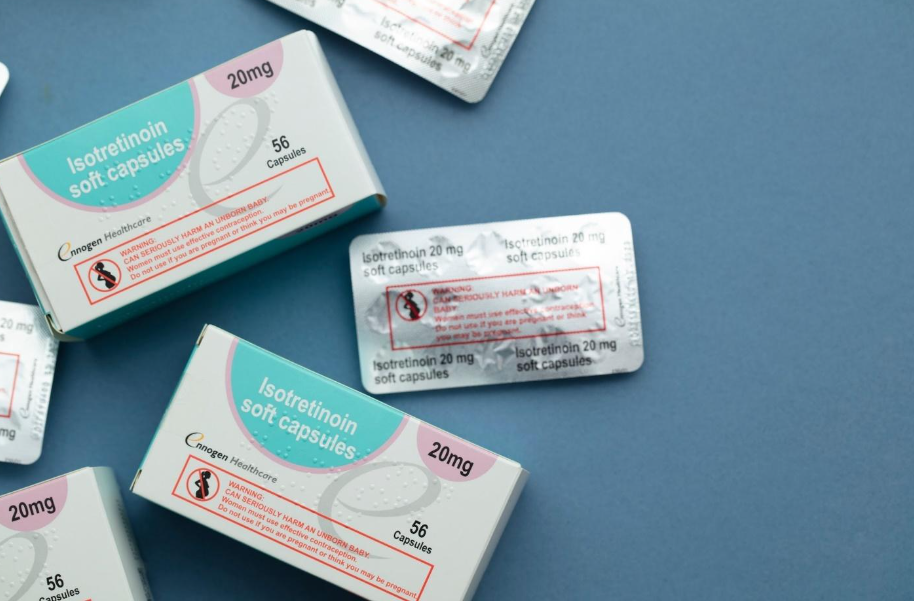
In this section, readers can find answers to common concerns about Accutane, including practical tips and emotional support resources to help them during treatment.
Frequently Asked Questions
Q: Can Accutane cause weight gain?
A: Accutane is not primarily associated with weight changes. Nonetheless, some individuals report temporary weight gain, which can typically be managed with a healthy diet and light exercise.
Q: How should one manage dry skin while on Accutane?
A: Moisturizers are essential. They should look for products specifically designed for sensitive skin and apply them regularly. Sun protection is also crucial; a broad-spectrum sunscreen should be applied daily.
Coping with the Emotional Impact
Managing the emotional challenges during Accutane treatment is important.
They should stay connected with friends and family for support.
If they find the emotional impact overwhelming, they might consider speaking with a therapist or counselor who can offer professional help.
It’s also beneficial to engage in stress-relieving activities such as light exercise. This can improve both their physical and mental health.

